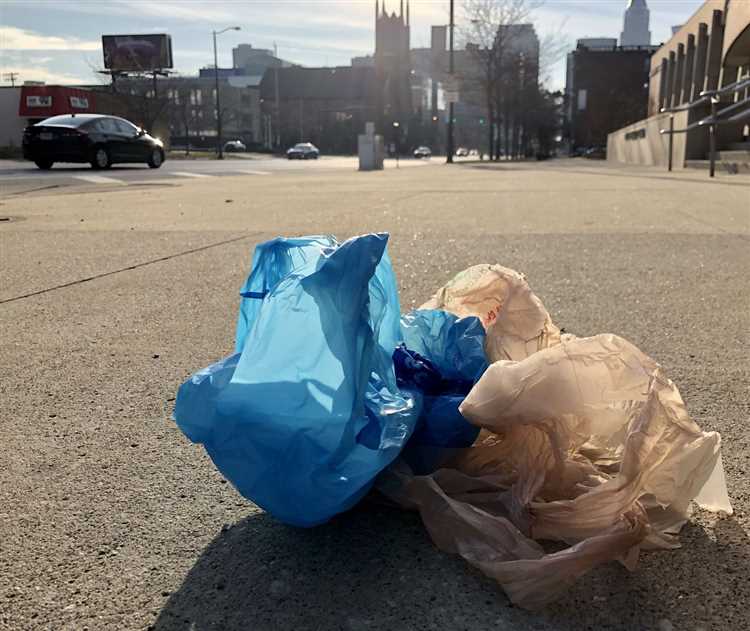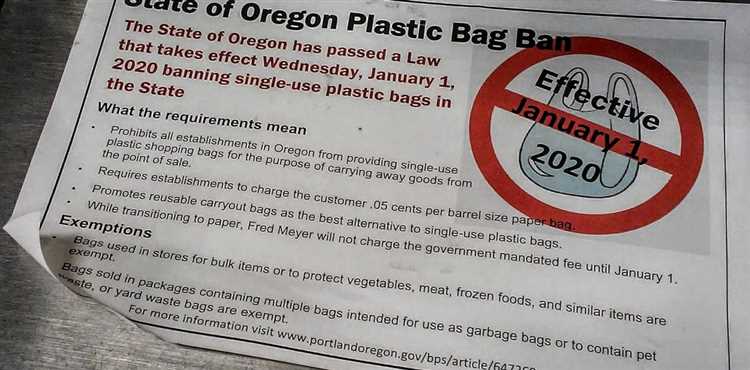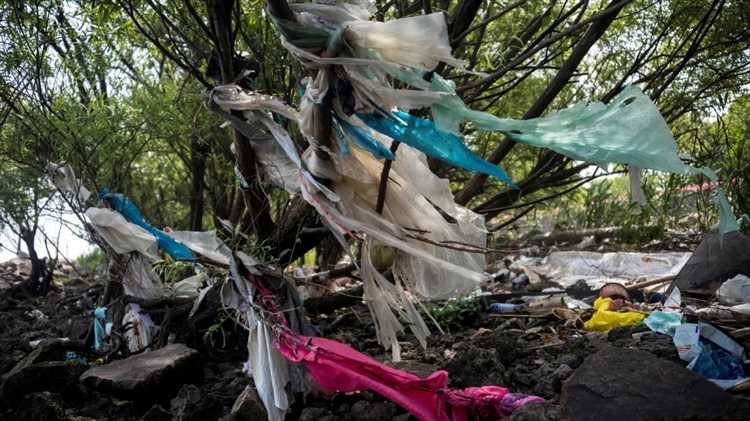Plastic bags have been a topic of much discussion and debate in recent years, and the state of Oregon has been at the forefront of the movement to reduce their use. In 2019, Oregon became the second state in the United States to implement a statewide ban on single-use plastic bags, following in the footsteps of California.
The ban, which aimed to reduce the environmental impact of plastic bags, was met with both support and opposition. Proponents argued that the ban would help protect wildlife, reduce litter, and promote the use of reusable bags. Opponents, on the other hand, expressed concerns about the economic impact on businesses and the inconvenience for consumers.
Now, several years after the ban was implemented, it is worth exploring the fate of Oregon’s plastic bag ban and the latest updates and developments surrounding it. Has the ban been successful in achieving its goals? What challenges and opportunities have arisen as a result of the ban? In this article, we will delve into these questions and more.
- Exploring the fate of Oregon’s plastic bag ban
- Opponents of the ban
- Supporters of the ban
- Latest updates and developments
- Decrease in plastic bag usage
- Transition to reusable bags
- Positive environmental impact
- Plastic bag ban in Oregon: What’s happening now?
- Current developments
- Opposition and pushback
- Key details and recent changes
- Original ban implementation
- Temporary suspension during COVID-19
- Resumption and amendments
- Impacts of Oregon’s plastic bag ban on the environment
- Question-answer:
- What is the latest update on Oregon’s plastic bag ban?
- Why was Oregon’s plastic bag ban suspended?
- When was Oregon’s plastic bag ban supposed to take effect?
- Who is behind the push to block Oregon’s plastic bag ban?
- What are the arguments in favor of Oregon’s plastic bag ban?
- What is the current status of Oregon’s plastic bag ban?
- Are there any updates on when the plastic bag ban in Oregon will be implemented?
Exploring the fate of Oregon’s plastic bag ban
In 2019, Oregon became the latest state in the United States to implement a ban on single-use plastic bags. The law, which was set to take effect on January 1, 2020, aimed at reducing plastic waste and promoting the use of reusable bags.
However, the fate of Oregon’s plastic bag ban has been a topic of debate and discussion in recent months. Critics argue that the ban unfairly targets small businesses and places an unnecessary burden on consumers. Supporters, on the other hand, believe that the ban is a necessary step towards protecting the environment and reducing pollution.
Opponents of the ban
Opponents of the plastic bag ban argue that it places an unfair burden on small businesses. They claim that banning single-use plastic bags forces small retailers to incur additional costs by providing alternative bags or charging customers for bags. Some opponents also argue that the ban is an infringement on personal freedom and choice.
Additionally, critics of the ban argue that it does not address the root causes of plastic pollution and waste. They argue that the focus should be on promoting recycling and developing better waste management systems, rather than banning a single item.
Supporters of the ban
Supporters of the ban argue that it is a necessary step towards reducing plastic waste and protecting the environment. They point to the negative impact that plastic bags have on wildlife, ecosystems, and human health. They argue that by banning single-use plastic bags, Oregon can reduce pollution and encourage the use of reusable alternatives.
Furthermore, supporters argue that the ban will help promote a shift in consumer behavior towards more sustainable choices. They believe that by making it more difficult to rely on single-use plastics, people will be more likely to choose reusable options and be mindful of their impact on the environment.
In conclusion, the fate of Oregon’s plastic bag ban continues to be a topic of discussion and debate. While opponents argue that the ban places an unfair burden on businesses and does not address the root causes of plastic waste, supporters believe that it is a necessary step towards protecting the environment and promoting sustainable choices. The ultimate outcome of the ban remains to be seen but, regardless of the outcome, the debate over plastic bag bans is likely to continue in other states and countries around the world.
Latest updates and developments
Since the implementation of Oregon’s plastic bag ban in January 2020, there have been several updates and developments regarding its effectiveness and impact on the state.
Decrease in plastic bag usage
One of the key developments following the ban is the significant decrease in plastic bag usage across the state. According to a recent report by the Oregon Department of Environmental Quality, plastic bag usage has decreased by 85% since the ban was implemented. This shows that the ban has successfully achieved its goal of reducing plastic waste and promoting sustainable alternatives.
Transition to reusable bags
As consumers adapt to the ban, there has been a noticeable shift towards the use of reusable bags. Many businesses have started offering reusable bags as an alternative, and individuals are increasingly carrying their own reusable bags when shopping. This change in behavior is a positive step towards reducing single-use plastic waste and encouraging sustainable shopping habits.
However, it is important to note that the transition to reusable bags has also faced some challenges. Some consumers have expressed concerns about the hygiene of reusable bags, particularly in light of the COVID-19 pandemic. To address these concerns, businesses and individuals are encouraged to regularly wash and sanitize their reusable bags to minimize any potential health risks.
In addition, some low-income communities have faced challenges in accessing reusable bags or paying for alternative options. Efforts are being made to address these concerns and ensure that the ban does not disproportionately impact vulnerable communities.
Positive environmental impact
The plastic bag ban has had a positive environmental impact on Oregon’s ecosystems. With the significant reduction in plastic bag usage, less plastic waste is ending up in landfills, waterways, and natural habitats. This helps protect wildlife and preserve the beauty of Oregon’s landscapes.
Furthermore, the ban has also raised public awareness about the environmental impact of single-use plastics. People are becoming more conscious of their consumption patterns and are actively seeking alternatives to reduce their carbon footprint.
In conclusion, the plastic bag ban in Oregon has had numerous positive updates and developments since its implementation. The decrease in plastic bag usage, transition to reusable bags, and positive environmental impact are all encouraging signs of progress towards a more sustainable future.
Plastic bag ban in Oregon: What’s happening now?
The plastic bag ban in Oregon has been a hotly debated topic in recent years. While some cities and counties in the state have implemented their own bans, there is still no statewide ban in place.
Current developments

Efforts to enact a statewide ban on plastic bags have faced various challenges. In 2019, a bill was introduced in the state legislature that would have implemented a ban on single-use plastic bags statewide. However, the bill did not pass, leaving the decision in the hands of local jurisdictions.
Several cities and counties in Oregon have taken matters into their own hands and implemented their own bans on plastic bags. For example, the city of Portland banned single-use plastic bags in 2011, while Eugene, Corvallis, and Salem followed suit in subsequent years.
Opposition and pushback

Despite the progress made at the local level, there has been opposition and pushback against the plastic bag bans. Critics argue that the bans are inconvenient for consumers and that reusable bags are not as environmentally friendly as they seem. Some also argue that the bans disproportionately affect low-income communities.
In response to these concerns, some lawmakers have proposed alternatives to outright bans, such as fees or taxes on single-use bags. These proposals aim to reduce plastic bag use without imposing a complete ban.
The plastic bag ban debate in Oregon is ongoing, with supporters and opponents of the bans continuing to make their voices heard. The outcome of these debates will determine the fate of plastic bag regulations in the state.
Key details and recent changes

The plastic bag ban in Oregon has been a topic of much debate and controversy in recent years. Here are some key details and recent changes regarding the ban:
Original ban implementation
The ban on single-use plastic bags in Oregon was first implemented in 2019. It applied to all retail establishments, including grocery stores, convenience stores, and pharmacies. Customers were encouraged to bring their own reusable bags or purchase paper bags for a small fee. The goal of the ban was to reduce plastic waste and promote sustainable alternatives.
Temporary suspension during COVID-19
Due to the COVID-19 pandemic, the implementation of the plastic bag ban was temporarily suspended in March 2020. This decision was made to prioritize public health and safety, as reusable bags were perceived as a potential source of contamination. Retail establishments were allowed to provide plastic bags to customers during this period.
Resumption and amendments
In January 2021, the plastic bag ban was officially resumed in Oregon. However, there were some significant amendments made to the original ban. Retail establishments were given the option to give out reusable plastic bags made from recycled content for free or for a small fee. This change was made to address concerns regarding the cleanliness and safety of reusable bags during the pandemic.
It is important to note that some cities in Oregon had their own plastic bag bans in place before the statewide ban. These cities were able to maintain their local bans and continue enforcing them.
The fate of the plastic bag ban in Oregon remains a dynamic issue, with potential for further changes and developments in the future. It will be interesting to see how the ban continues to evolve and adapt in response to environmental concerns and public health considerations.
Impacts of Oregon’s plastic bag ban on the environment
The implementation of Oregon’s plastic bag ban has had significant positive impacts on the environment. By reducing the consumption of single-use plastic bags, the state has seen a decrease in plastic pollution, leading to cleaner waterways and a healthier ecosystem.
One of the main benefits of the plastic bag ban is the reduction in litter. Plastic bags are notorious for clogging storm drains, littering streets and parks, and harming wildlife. With the ban in place, there are fewer bags being discarded and therefore fewer ending up in our natural environment.
In addition to reducing litter, the plastic bag ban has also helped to decrease the carbon footprint associated with the production and disposal of plastic bags. The production of plastic bags requires the extraction of fossil fuels and the release of greenhouse gases. By using fewer plastic bags, Oregon has reduced its reliance on fossil fuels and reduced the emissions of harmful gases into the atmosphere.
The ban has also led to an increase in the use of reusable bags, encouraging consumers to make more sustainable choices. Reusable bags are typically made from more durable materials such as canvas or cloth, which have a longer lifespan and can be used multiple times. This shift towards reusable bags has reduced the demand for single-use plastic bags and has further minimized the waste generated.
However, it is important to note that the plastic bag ban has not been without its challenges. Some consumers have expressed dissatisfaction with the inconvenience of carrying reusable bags or have found it difficult to remember to bring them when shopping. Retailers have also faced some difficulties in adjusting to the ban, particularly in terms of finding suitable alternatives and adjusting their inventory.
| Positive Impacts | Challenges |
|---|---|
| – Reduction in plastic pollution | – Inconvenience for some consumers |
| – Cleaner waterways and ecosystem | – Difficulties for retailers |
| – Decrease in carbon footprint | |
| – Encouragement of sustainable choices | |
| – Increased use of reusable bags |
Overall, the plastic bag ban in Oregon has had numerous positive impacts on the environment, including reductions in plastic pollution, carbon emissions, and waste generation. While some challenges have arisen, the long-term benefits of the ban far outweigh the inconveniences faced by some consumers and retailers.
Question-answer:
What is the latest update on Oregon’s plastic bag ban?
The latest update on Oregon’s plastic bag ban is that it has been temporarily suspended due to concerns over the spread of COVID-19. The ban was scheduled to take effect on January 1, 2020, but a coalition of plastic industry trade groups collected enough signatures to put a referendum on the ballot to block the ban. The ban will remain on hold until the referendum is held in November 2020.
Why was Oregon’s plastic bag ban suspended?
Oregon’s plastic bag ban was suspended due to concerns over the spread of COVID-19. The plastic industry trade groups argued that reusable bags, which were encouraged as an alternative to single-use plastic bags under the ban, could potentially carry the virus and pose a health risk. As a result, the ban was temporarily put on hold pending the outcome of a referendum in November 2020.
When was Oregon’s plastic bag ban supposed to take effect?
Oregon’s plastic bag ban was supposed to take effect on January 1, 2020. However, it was temporarily suspended due to concerns over the spread of COVID-19. The ban will remain on hold until a referendum is held in November 2020.
Who is behind the push to block Oregon’s plastic bag ban?
A coalition of plastic industry trade groups is behind the push to block Oregon’s plastic bag ban. These trade groups collected enough signatures to put a referendum on the ballot, which would effectively block the ban. They argue that reusable bags, which are encouraged under the ban, could potentially carry the virus and pose a health risk. The outcome of the referendum will determine the fate of the ban.
What are the arguments in favor of Oregon’s plastic bag ban?
There are several arguments in favor of Oregon’s plastic bag ban. Proponents argue that it will reduce plastic waste and litter, protect wildlife and the environment, and encourage the use of reusable bags. They claim that plastic bags are a major source of pollution and that the ban will help Oregon move towards a more sustainable future. However, the ban has been temporarily suspended and its fate will be decided in a referendum in November 2020.
What is the current status of Oregon’s plastic bag ban?
The current status of Oregon’s plastic bag ban is that it has been temporarily suspended due to the COVID-19 pandemic. The ban was supposed to go into effect on January 1, 2020, but it was put on hold to help retailers safely handle customer’s groceries during the pandemic.
Are there any updates on when the plastic bag ban in Oregon will be implemented?
Currently, there are no specific updates on when the plastic bag ban in Oregon will be implemented. The ban has been temporarily suspended due to the COVID-19 pandemic, and it is uncertain when it will be reinstated. However, the state is still committed to reducing plastic waste and promoting sustainable alternatives to single-use bags.